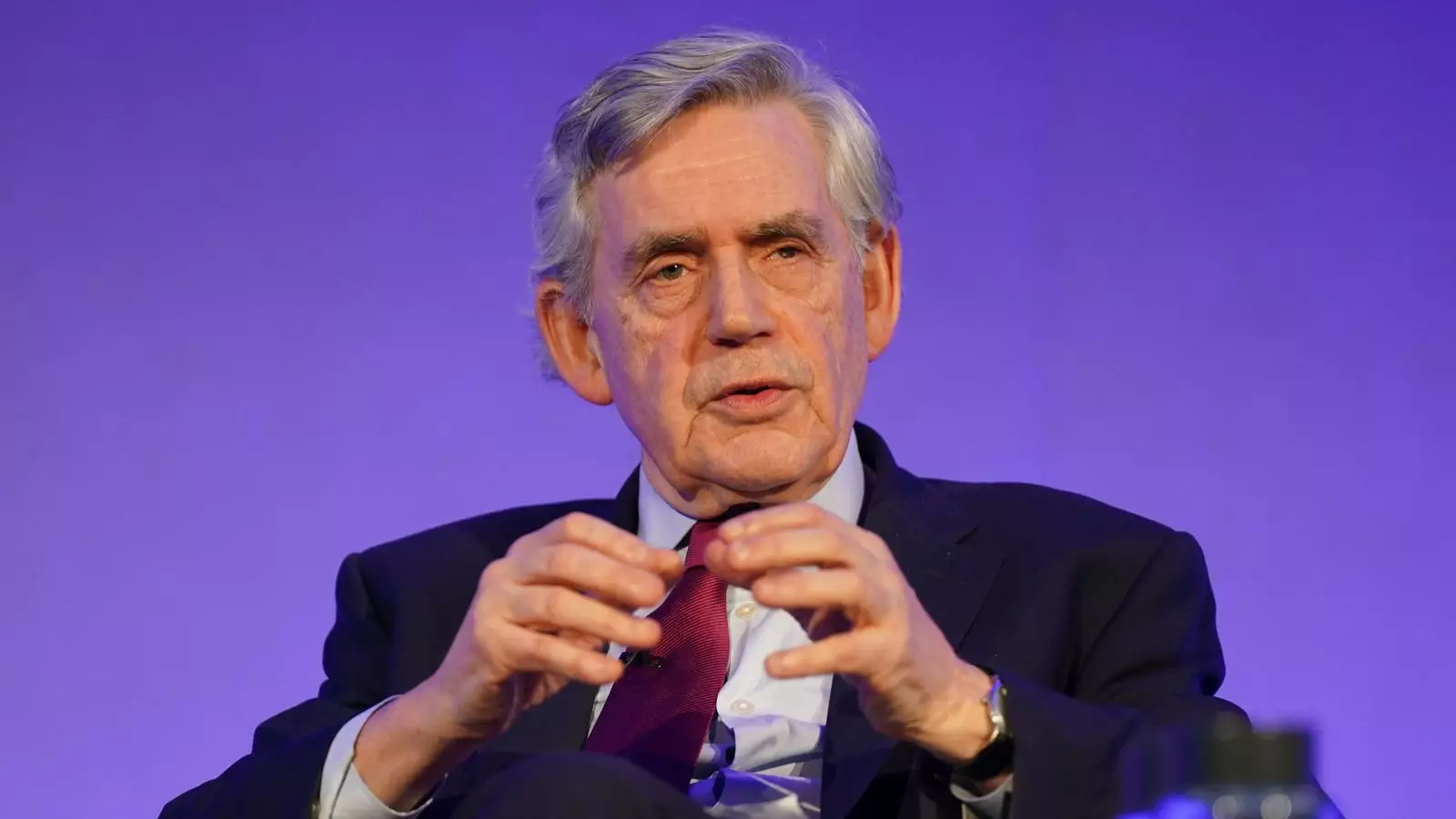In an age where the cost of living continuously strains many households, especially among the elderly, the discourse surrounding winter fuel payments is more crucial than ever. Former Labour Prime Minister Gordon Brown has recently weighed in by advocating for a balance between fiscal responsibility and the basic needs of pensioners. The weather may turn frigid, but the warmth of fiscal fairness should not wane. Brown’s assertion that pensioners should not suffer simply because they have devoted their lives to contributing to society is an important reminder of our moral duties. We must recognize that for many, immediate survival outweighs theoretical concerns about budget constraints.
The U-Turn: A Necessary Shift?
The recent admissions from current Labour leader Sir Keir Starmer suggest a cautious pivot towards embracing warmer policies for pensioners. His decision to reconsider winter fuel payments—which Brown originally introduced as universal assistance—signals an understanding that even the most seemingly trivial relief can vastly improve quality of life for vulnerable populations. Particularly in a political climate that has become exceptionally polarized, the U-turn on means-testing the winter fuel payments may be a necessary but insufficient step forward.
Brown articulated his belief that those earning at the top level of income tax should be excluded from what may seem like a universal benefit, thus narrowing its reach to the most vulnerable among our society. Whether one leans left or right, it is difficult to argue against the ethos of taking care of our elderly, who have held up their end of public service, even if the argument for means-testing carries financial implications.
The Backlash: Consequences of Leadership Choices
Starmer’s apparent reversal comes in response to backlash not just from the general public, but also from within his own party. Following substantial local election losses—upwards of 189 council seats—it is evident that decisions made in isolation from party values can have dire consequences. When policy choices betray foundational ethics, the consequences can be politically catastrophic. The original plan to significantly reduce the number of qualifying pensioners from 11.4 million to 1.5 million was met with fierce resistance—not just out of concern for those left in the lurch, but also as a reflection of the party’s ideological identity.
Labour’s dilemma highlights the critical importance of listening to constituents. While a government must balance its budget, it should never do so at the expense of basic human dignity. The relationships between policy decisions, party integrity, and electoral success are intertwined yet tragically often ignored.
A Call for Compassionate Economics
The tug of war between financial conservatism and the welfare of the populace must find its equilibrium. The government’s rationale of saving £1.5 billion per year continues to ring hollow when it strips those who have dedicated their lives to labor of their fundamental rights, especially during winter months when need is at its peak. The notion that fiscal netting must include the elderly, who have already demonstrated their commitment to society, is both a strategic mistake and a moral failing.
Can we not advocate our economic prudence without sacrificing kindness? The challenge ahead lies not just in reforming policies but in recasting our socio-economic narrative. It’s no longer just about numbers; it is about the lived experience of those who have become the backbone of our communities. As Starmer suggests potential changes in eligibility thresholds, one must question whether such incremental measures will sufficiently address the pressing needs of older citizens or if they will remain trapped in a cycle of economic inadequacy.
Winter should remind us of warmth and safety, yet for too many pensioners, it signifies enduring hardship. The call to make winter fuel payments more accessible is not merely a policy language; it marks an opportunity to redefine what we stand for as a society. It is a chance to commit to a future where our elders do not face the chill of financial struggle, even as the temperature drops outside. The moral fabric of our nation rests in how we treat those who have dedicated themselves to it.

